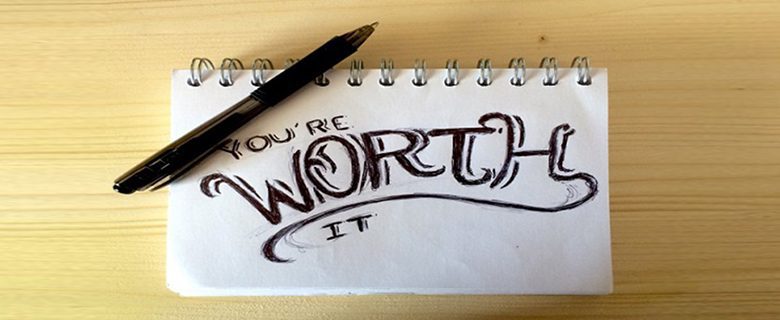
Knowing your value and believing in it
It’s a fact, whether you’re disabled or not, money matters. For my disabled brothers and sisters the need for income is compounded by our higher cost of living. A recent report by Scope found that on average, disabled people spend £550 extra a month on living costs. But getting your hands on the money you need in part comes down to whether or not you’re able to find the right job for you.
My personal story has taken me through mainstream education up to Masters level, and full-time employment for six years as a charity fundraiser. All good, but in the end, self-employment suited my health and happiness better, but not always my bank account.
Early on, despite knowing all of the business theories, I was struggling to generate income. I had two websites (my blog and Disability Horizons) with great content and lots of traffic. But I wasn’t really earning and I couldn’t understand why. So I started to reflect on my situation and uncovered a few things.
The first thing I realised was that I hadn’t defined the audience I was specifically helping. Lots of people came to the websites, but who were they and what were they seeking? I also hadn’t properly defined my product or service. In other words, my value. How can anyone pay for something that isn’t defined?
Without a defined audience or a packaged entity, the problem was sickeningly obviously. But why had I overlooked something so fundamental?
It was confidence! Or lack there of. You see, I loved creating the websites, the articles, the videos, the tweets and the interactions. However, I didn’t feel that what I offered was valuable enough commercially.
After a few strong words from myself and from loved ones, I realised how ridiculous this was. So I set about defining my passions, knowledge, experience, likes, skills, the audience and most importantly, the VALUE I bring.
I then realised that I had two audiences; 1) disabled people and 2) organisations wanting to communicate with disabled people.
Creating a commercial product for disabled people didn’t feel right. Therefore I’m always open to funders and sponsors down the road to back ideas. But it’s too risky to sit around and wait for.
In the meantime I realised I have a lot to offer organisations wanting to communicate with disabled people (government, councils, charities and companies). In understanding that if their needs, the newly defined services and the pricing all matched up, it might actually work!
When finally putting this to the test, feeling more confident in the proposition, it was amazing. Not everyone required the services or had budget. However, many did want the services and were happy to pay good money too.
Now I’m working a day a week as a marketing and copywriting consultant for a small business. The rest of the time Disability Horizons is partnering with big organisations, which keeps us off the streets J Most importantly, it actually increases our social impact.
So I’m able to stay warm, eat, help others and be creative. Every day of the week! Pretty cool I’d say…
Finally, remember it’s not just relevant for entrepreneurs. The same is true when seeking employment: Your value, their needs, and a fair salary.
What’s your view? Do you know your value? Do you believe in it? Get in touch by messaging us on Facebook, tweeting us @DHorizons, emailing us at editor@disabilityhorizons.com or leaving your comments below.
Best of luck guys.
By Martyn Sibley
Check out…
• #DisabledAchievers: the importance of help and support
• Is disability a political issue?
• How to build a successful business around your disability
Originally posted on 15/05/2014 @ 12:30 am
I work for my self due to my disability, but don’t even get the support of Tax Credits as I don’t earn enough despite working hard and doing a job that my disability allows – its wrong!